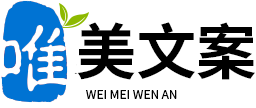英语作文介绍
Title: Strategies for Effective Online Content Optimization
Introduction: In today's digital age, online content optimization plays a crucial role in improving search engine rankings and attracting more visitors to a website. By following certain guidelines and strategies, one can ensure that their content is well-optimized without explicitly mentioning SEO rules. This article will provide useful insights into effective content optimization techniques.
Keyword Research: Identifying relevant and high-ranking keywords is essential for successful content optimization. By conducting thorough keyword research, content creators can understand the search intent of their target audience and incorporate those keywords naturally throughout their content.
Quality and Engaging Content: Creating high-quality content that captivates readers is vital for optimizing web pages. By providing valuable information and addressing the needs of the audience, content creators can increase user engagement, time spent on the page, and lower bounce rates. This indirectly improves search engine rankings.
Title Tags and Meta Descriptions: Crafting compelling title tags and meta descriptions helps search engines understand the content of a webpage. These elements should accurately summarize the page while enticing users to click through the search results. Including relevant keywords in these tags can further enhance the optimization process.
Proper Heading Structure: Using proper heading tags (H1, H2, H3, etc.) helps search engines and users navigate through the content easily. By structuring headings hierarchically and incorporating keywords naturally, content creators can enhance the optimization without explicitly mentioning SEO rules.
Image Optimization: Optimizing images is crucial for improving page load speed and enhancing the user experience. Using descriptive filenames, alt text, and compressing images can help search engines understand the content and improve the overall optimization of the webpage.
Mobile-Friendliness: With the increasing use of mobile devices, having a mobile-friendly website is essential. Ensuring that the website is responsive, loads quickly, and provides a seamless user experience across different devices indirectly contributes to better search engine rankings.
Internal and External Linking: Including relevant internal and external links in the content helps search engines understand the context and relevance of the webpage. Properly linking to authoritative sources and other pages within the website enhances the optimization process.
Conclusion: Effective online content optimization requires a comprehensive understanding of various techniques and strategies. By implementing the above-mentioned tactics, content creators can improve their search engine rankings and attract more visitors without explicitly mentioning SEO rules. Remember, providing valuable and engaging content that meets the needs of the audience is the key to successful content optimization.
